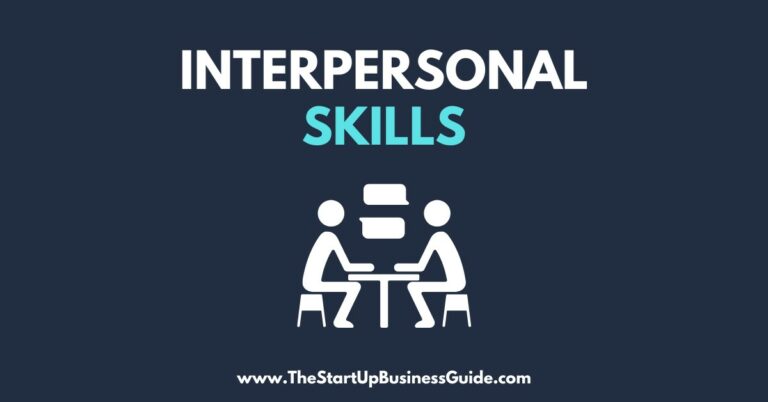How to Negotiate Salary

Negotiating your salary can be a daunting task, but it’s an important part of the job search process.
In fact, studies have shown that individuals who negotiate their salary can earn thousands of dollars more per year.
In this article, we’ll discuss the importance of preparing for salary negotiations, the steps involved in the negotiation process, and other factors to consider.
By the end of this post, you’ll have the tools you need to negotiate your salary with confidence.
Preparation
First, let’s talk about preparation. Before you begin the negotiation process, it’s important to do your research.
This includes looking at job postings for similar positions, researching the company’s website and annual reports, and using salary calculators and databases.
By researching the industry and position, you’ll have a better idea of what to expect in terms of salary.
Next, it’s important to know your own worth. This means assessing your skills, experience, and education.
By understanding your own value, you’ll be better equipped to negotiate your salary.
The Negotiation Process
Further, it’s important to have a clear idea of your desired salary range before beginning the negotiation process.
Now that you’re prepared, let’s talk about the negotiation process itself. The first step is making the initial salary request.
It’s important to be confident and assertive when making this request.
Use data and research to support your salary request, and be willing to compromise to find a middle ground.
After the initial request, it’s likely that you’ll receive a counteroffer.
It’s important to be prepared for this, and to respond in a professional manner. Be open to discussing the offer and finding a solution that works for both parties.
Other Factors to Consider
Finally, it’s important to close the deal and finalize the agreement.
In addition to salary, there are other factors that may be negotiable.
These can include health benefits, paid time off, retirement benefits, and remote working options.
It’s important to research these factors and be prepared to negotiate them as well.
Conclusion
In conclusion, salary negotiation is an important part of the job search process.
By preparing, researching, and understanding your own worth, you’ll be better equipped to negotiate your salary.
Moreover, by being prepared for common objections and obstacles, you’ll be able to navigate the negotiation process with confidence.
Always remember to take the time to prepare and practice before negotiating your salary. Good luck!
Frequently Asked Questions on Salary Negotiation
How do I prepare for a salary negotiation?
Research the average salary for the position and industry, and have specific numbers in mind for what you are asking for.
Also, be prepared to justify your request with examples of your qualifications and accomplishments.
What should I say when asked about my current salary?
It’s best to avoid sharing your current salary if possible. Instead, focus on the value you can bring to the company and the salary range you are seeking.
How do I bring up the topic of salary during an interview?
It’s best to wait for the employer to bring up the topic of salary. However, if they don’t, you can casually mention it during the interview by saying something like “I’m definitely interested in the role, could we discuss compensation and benefits during this interview?”
What if the employer’s initial offer is lower than what I was expecting?
It’s important to remain calm and professional. You can respond by saying something like “Thank you for the offer, but I was actually expecting something slightly higher based on my qualifications and experience. Can you tell me more about the reasoning behind this offer?”
How do I negotiate benefits and perks?
You can discuss benefits and perks during the negotiation process by saying something like “I’m interested in the role and compensation, but I was also wondering if there are any benefits or perks that the company offers that could sweeten the deal for me.”
How do I handle a counteroffer from my current employer?
If your current employer makes a counteroffer, it’s important to weigh the pros and cons of staying with your current employer versus accepting the new job offer.
Consider factors such as compensation, work-life balance, and growth opportunities before making a decision.
What if the employer says they have a strict budget?
If the employer mentions a strict budget, you can respond by saying something like “I understand that budgets can be tight, but based on my qualifications and experience, I believe my value to the company justifies the salary I am asking for. Can we discuss ways to make it work within your budget?”
How do I negotiate a raise at my current job?
To negotiate a raise at your current job, research the average salary for your position and industry, and have specific numbers in mind.
Then schedule a meeting with your boss, and come prepared with examples of your accomplishments and how you have added value to the company.
What should I do if the employer says they will not budge on salary?
If the employer says they will not budge on salary, you can respond by saying something like “I understand that the company has a budget, but I believe my qualifications and experience justify a higher salary. Can we discuss other ways to make the compensation package more attractive, such as benefits or flexible work arrangements?”
What if I am not satisfied with the final offer?
If you are not satisfied with the final offer, you can try to negotiate further or you may decide to decline the offer.
It’s important to remember that you should never feel pressured to accept a job offer if the compensation is not fair and reasonable.
How do I follow up after salary negotiation?
It’s a good idea to follow up with a thank-you note or email reiterating your interest in the position and your understanding of the terms discussed during the negotiation.
Further, it’s a good idea to confirm the terms of your offer in writing before accepting a job.






